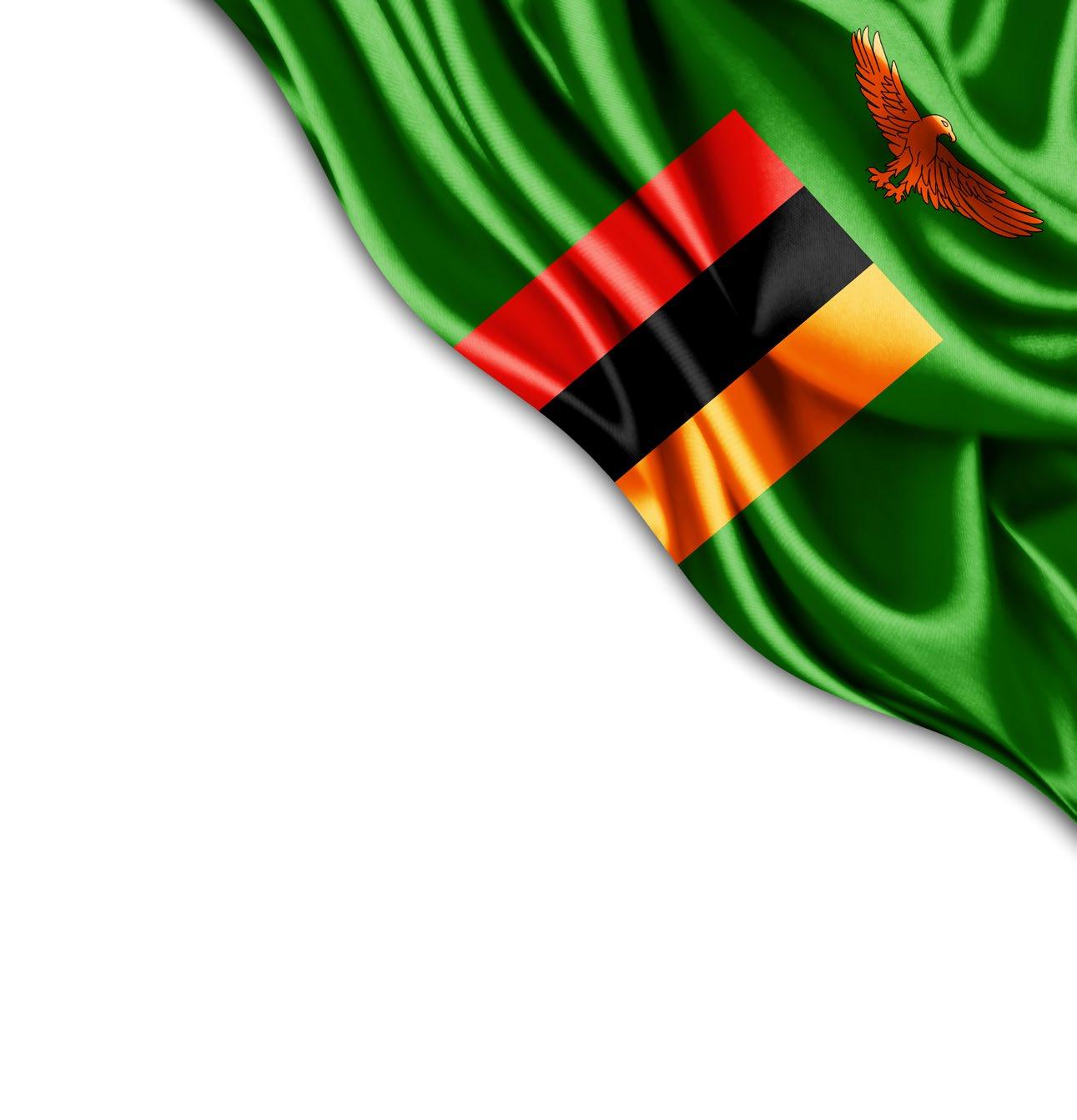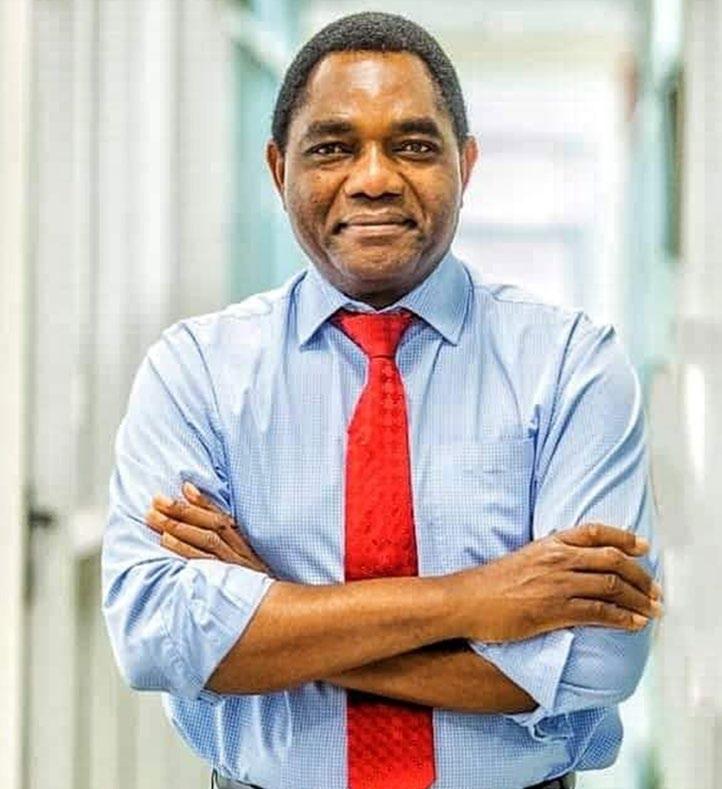
4 minute read
Not yet Uhuru
BY MARTINS AGBONLAHOR
is a criminologist, journalist and author based in Manchester.
Advertisement
“Uhuru!” yelled the tumultuous crowd, as they headed towards Lusaka, the Zambian capital, waving red banners. Amongst them was a bevy of beautiful ladies, their ebony skin aglow with balls of sweat as they danced to the beatings of drums, maracas and other percussion instruments. There were some European tourists too, who seemed ignorant of what was going on, but the shrill voice of one of the drummers put the scene into perspective: ‘Uhuru umekuja leo,’ loosely translated as ‘Freedom has come today.’ They were celebrating the victory of the country’s opposition leader, Mr Hakainde Hichilema of the United Party for National Development (UPND), who defeated the incumbent President Edgar Lungu of the Patriotic Front (PF), in the tightly-contested presidential election of 12 August, 2021.
In this vein, I congratulate the winning candidate, but in doing so, I must also salute the humility of the outgoing president, Mr Lungu, who displayed cheerfulness and all tenets of fairness - even in defeat. He knew he had lost the election, but nevertheless, accepted defeat graciously and congratulated the victor.
This is good for African politics, unlike other cantankerous aspirants of yesteryear, whose names leave a sour taste in the mouth: Gambia’s Yahya Jammeh, the Ivorian Gbagbo, Angola’s Savimbi, Moi and Kibaki of Kenya and others who took politics as a do-or-die affair – and who, in defeat, resorted to guns and machetes, cashing in on tribal allegiances and turning their streets and alleyways into rivers of blood. I’m glad these ‘statesmen’ are now irretrievably buried in the garbage heap of history.
President-elect Hichilema’s ascendancy to power marked the country’s third peaceful change of power, which began in the ‘90s with the late President Kenneth David Kaunda, who saw the global political pendulum swinging towards multipartyism and swung with it, signalling the demise of the one-party state, and the emergence of the multiparty system in the country. Understandably, it is not a bad thing that Mr Hichilema and his followers have rolled out the drums and cymbals, but with the celebration and the accompanying bacchanalian feast snowballing into successive nights, I would say with all modesty and without any fear of contradiction, that the honeymoon is over.
The President-elect has a lot on his plate, and the enormity of the task ahead cannot really be underestimated. China, today, has a stranglehold on Zambia’s economy because of the huge debts owed to that country. Zambia is also indebted to the tune of millions of dollars to the IMF as well as other international lenders, yet these ‘development loans’ poured into the country have not aided the generality of the populace, who are presently groaning under the yoke of poverty, as a whopping 40% of them earn less than $1.25 a day. President Hichilema, who himself is an economist, must put on his thinking cap and address this.
He had said in his inaugural speech that he is an “action president” who would ensure that “no Zambian shall go to bed hungry.” These are fine words to the ears, but the president must put his money where his mouth is and translate this into reality. He should help heal the wounds of unemployed and starving youths, as the country’s unemployment rate stands at 23% and is still rising. To take this further, Zambia must diversify its economy, and not be like Nigeria, whose reliance on oil led to the dearth or, put succinctly, the death of cocoa, rubber, iron-ore and coal, which were our mainstay in the sixties. Now the oil fields have been sucked dry by our avaricious politicians, and our economy is in a shambles. Zambia should learn from our extreme short-sightedness and stop her total reliance on the copper industry. Agriculture and mechanised farming, in particular, must be encouraged. The tourism industry also needs a boost. Soft loans should be given to upcoming entrepreneurs of small-scale businesses to shore up their fledgling businesses.
Another aspect the new president should look at is corruption, which has become the country’s bane, hindering and stultifying progress. Business operations in the country are riddled with corruption, bribery and kickbacks, as well as redtapism. If the new president must do a good job, he must jostle the country’s judiciary from its deep slumber, and ensure that any corrupt official dragged before it is punished, no matter how mighty or connected they may be. Secondly, I urge the new president to initiate an immediate overhaul of the country’s Anti-Corruption Act, which though purporting to ‘prohibit extortion, money laundering and corruption,’ is actually a lame duck, constantly circumvented by corrupt businessmen who grease the palms of government officials with wads of dollars, and escape the so-called ‘long arm’ of the law.
Health-wise, Zambia is still reeling under the weight of HIV/AIDS - not least the rate of infant mortality, which has risen to 43 deaths per 1000 live births. Worse still, there are excruciating reports of women in rural areas with no access to clinics being forced to give birth unassisted. This must stop, and I don’t think one would be asking for too much if the new president were to establish clinics and dispensaries in the country’s hinterland.
As President Hichilema wows the entire populace with tons of promises reeled out to the delight of his admirers, it is really not yet uhuru for the new regime, until it lays out solid programmes that will better the lot of the suffering people and put Zambia as one of Africa’s functioning states. That’s the way I see it.











